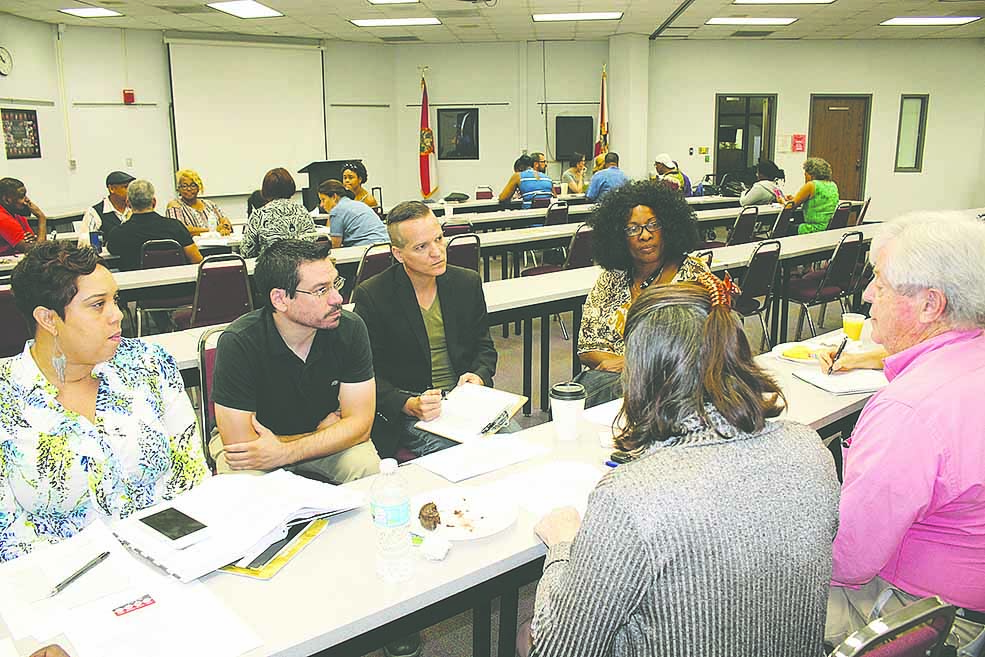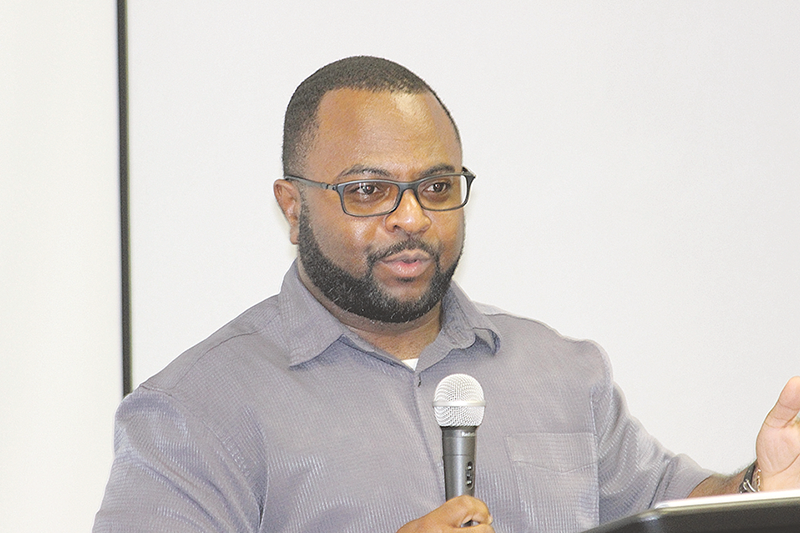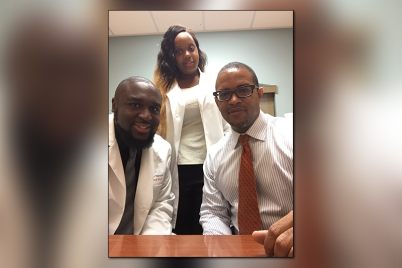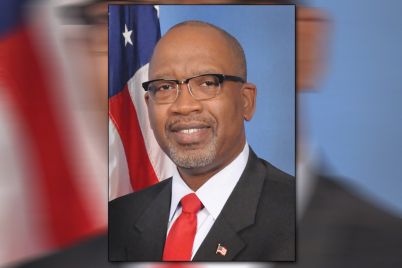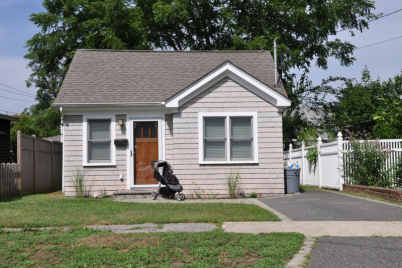Bro. John Muhammad
BY RAVEN JOY SHONEL, Staff Writer
ST. PETERSBURG – Last month, a summit to glean ideas from the community for The New Deal for St. Pete initiative was well attended with elected officials, clergy and community members from all walks of life coming together for a meeting of the minds.
Held at Pinellas Technical College (PTC), Bro. John Muhammad gave some background on where the New Deal came from to get the room up to speed. It was birthed from approximately 1,400 surveys from the People’s Budget Review, which is a coalition of community activist, local business owners, neighborhood advocates, union members and everyday people working to ensure that all residents have a voice in the decisions that affect the well-being of the community.
These volunteers canvased south side neighborhoods and local events conducting surveys and spoke with hundreds of people about what they feel they need instead of relying on a few elected officials to decide for them.
The four main points of progress that came from the surveys were affordable housing, more educational opportunities, creating a living wage for the entire city and investing in community wealth.
“We need a transformative approach because the small incremental approach is great, but what we need is something more transformative and something more robust,” said Muhammad.
The early morning summit was held to review the points of progress and get feedback to make sure they were on the right track. The room was broken up into four groups with each one tackling the four points. A note taker in each group took fastidious notes and those comments will be shared with the community.
